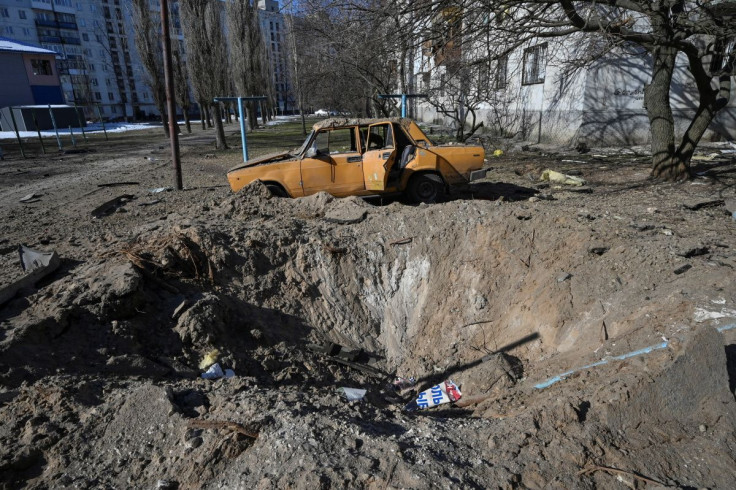More Evacuations Needed From Ukraine's Luhansk As Shelling Increases - Governor

More people need to evacuate from the Luhansk region in eastern Ukraine as shelling has increased in recent days and more Russian forces have been arriving, Luhansk Governor Serhiy Gaidai said on Saturday.
He said that some 30% of residents still remain in cities and villages across the region and have been asked to evacuate.
"They (Russia) are amassing forces for an offensive and we see the number of shelling has increased," Gaidai told public television.
Ukraine has increasingly been warning that Russia plans intensified attacks in the country's east and south after withdrawing its troops from areas to the north of the capital, Kyiv.
The United States said this week that Moscow probably plans to deploy tens of thousands of soldiers in eastern Ukraine.
Ukraine's Deputy Prime Minister Iryna Vereshchuk said that 10 humanitarian corridors have been agreed for the evacuation of people across the country, including for people to leave the southern besieged port of Mariupol by private transport.
Mariupol, with its strategic location on the coast of the Sea of Azov, has been battered by Russian strikes since the start of the war on Feb. 24.
Multiple attempts to agree safe passage for buses to take supplies to Mariupol and bring out civilians have failed, with each side blaming the other.
The Russian defence ministry said on Saturday that it transported more than 80 residents from the left bank district of Mariupol on Friday, the Russian RIA news agency reported.
"All people were taken to safe places," RIA cited a statement from the ministry. "Residents who suffered from shelling were provided with qualified medical help by Russian servicemen".
Reuters could not immediately verify that.
Moscow has denied targetting civilians in what it calls a "special military operation" aimed at demilitarising and "denazifying" its neighbour. Ukraine and its Western allies call this a baseless pretext for war.
© Copyright Thomson Reuters 2024. All rights reserved.





















